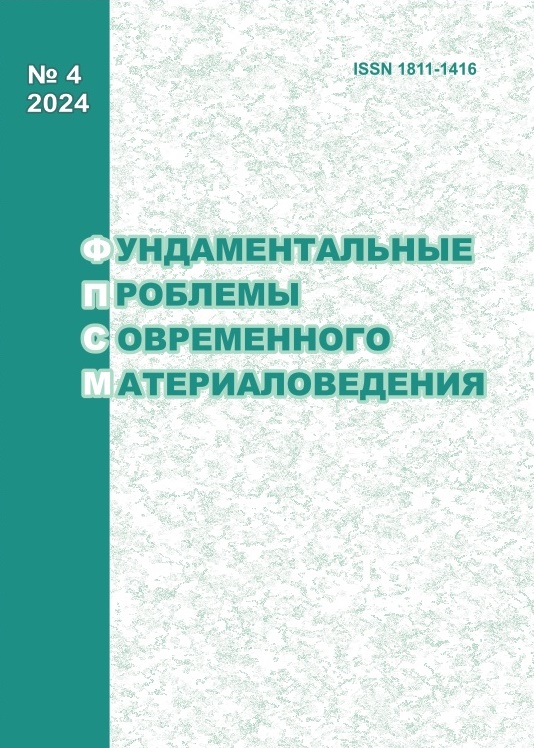ИЗУЧЕНИЕ ВЛИЯНИЯ ДОБАВОК ГАФНИЯ В СПЛАВЕ 1570 НА СПОСОБНОСТЬ ЧАСТИЦ Al3Sc К ТОРМОЖЕНИЮ ПРОЦЕССОВ РЕКРИСТАЛЛИЗАЦИИ
10.25712/ASTU.1811-1416.2024.04.012
Ключевые слова:
гафний, алюминиевые сплавы, скандий, зенеровское торможение, рекристаллизация, движущая сила, термомеханическая обработка, упрочняющие частицы, переходные металлы, просвечивающая микроскопияАннотация
Исследование посвящено изучению влияния гафния на антирекристаллизационные свойства сплава 1570. В процессе исследования сплав 1570 и его модификации, содержащие 0,2 % и 0,5 % масс. гафния, исследовались в литом и гомогенизированном состояниях при помощи просвечивающей электронной микроскопии. В результате выявлено, что легирование гафнием 0,2 % масс. при отжиге в течение 4 часов при температуре 370 °С приводит к снижению объема выделившихся частиц по сравнению со сплавом 1570. При повышении концентрации гафния до 0,5 % количество частиц продолжает уменьшаться. Теоретические расчеты тормозящей и движущей сил рекристаллизации показывают, что в сплавах, содержащих гафний 0,5 % масс., при высоких параметрах Холомона-Зенера возможно протекание рекристаллизации. Отжиг при температуре 440 °С приводят к увеличению доли и уменьшению размера частиц в сплавах с содержанием гафния. Особенно сильно уменьшается размер частиц и растет их объем в сплаве с содержанием гафния 0,2 %. Таким образом, в сплавах, легированных гафнием, рекристаллизация блокируется при любых рассмотренных в данной работе параметрах Холломона-Зенера. В сплаве без гафния рост температуры отжига, наоборот, приводит к уменьшению количества частиц и увлечению их размера. В результате тормозящая сила несколько снижается, однако ее все равно достаточно для полного торможения процессов рекристаллизации.











 Журнал «Фундаментальные проблемы современного материаловедения»
Журнал «Фундаментальные проблемы современного материаловедения» Контент доступен под лицензией
Контент доступен под лицензией 
